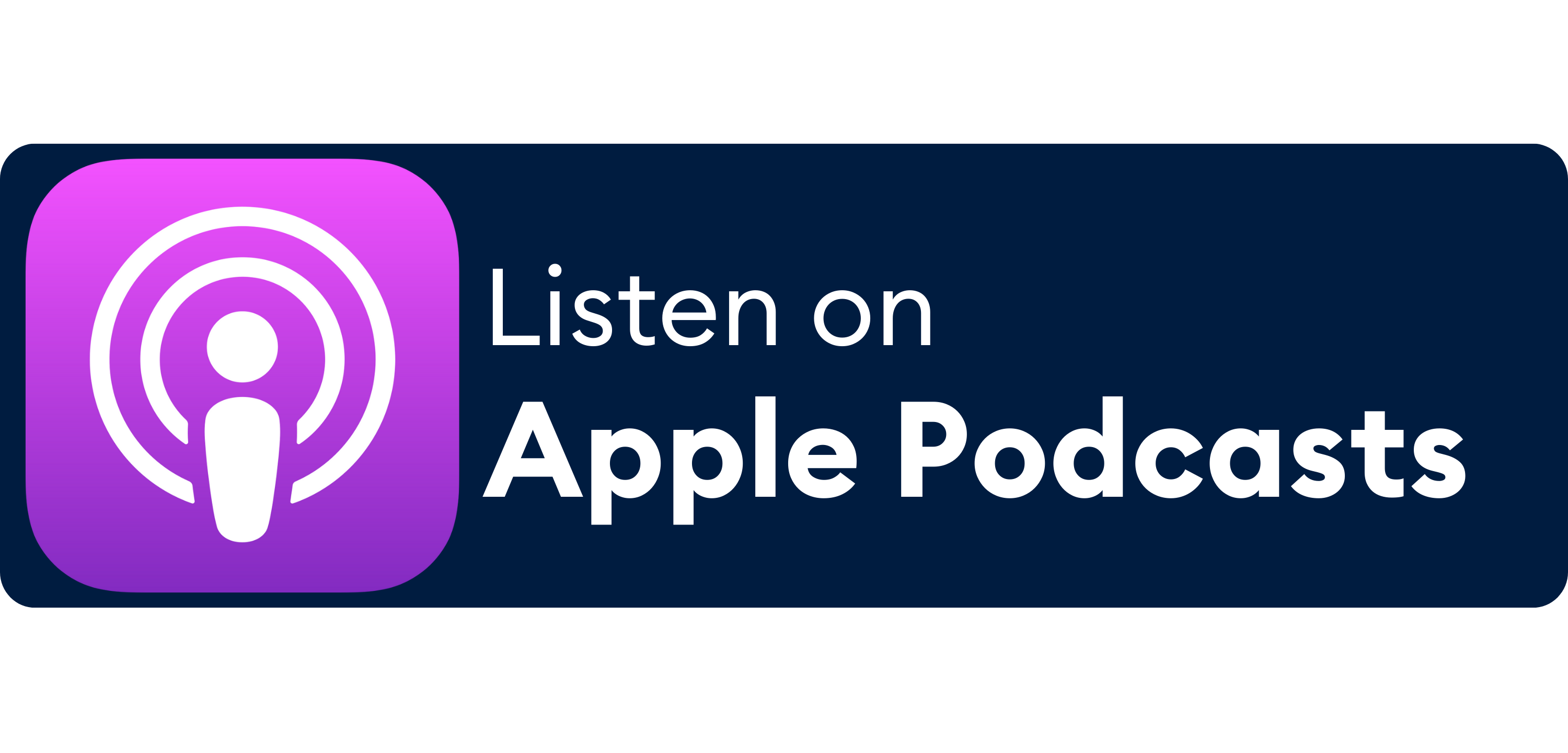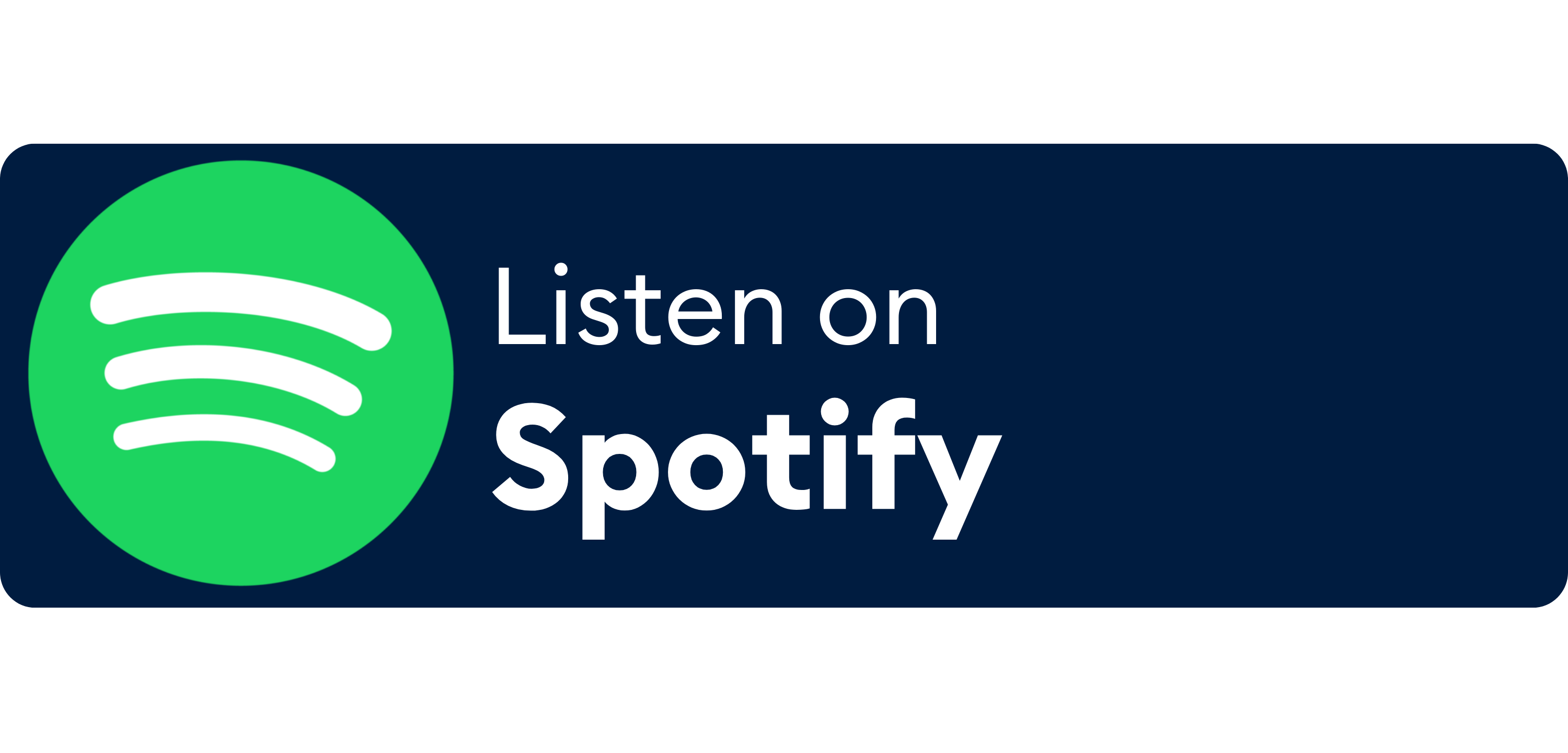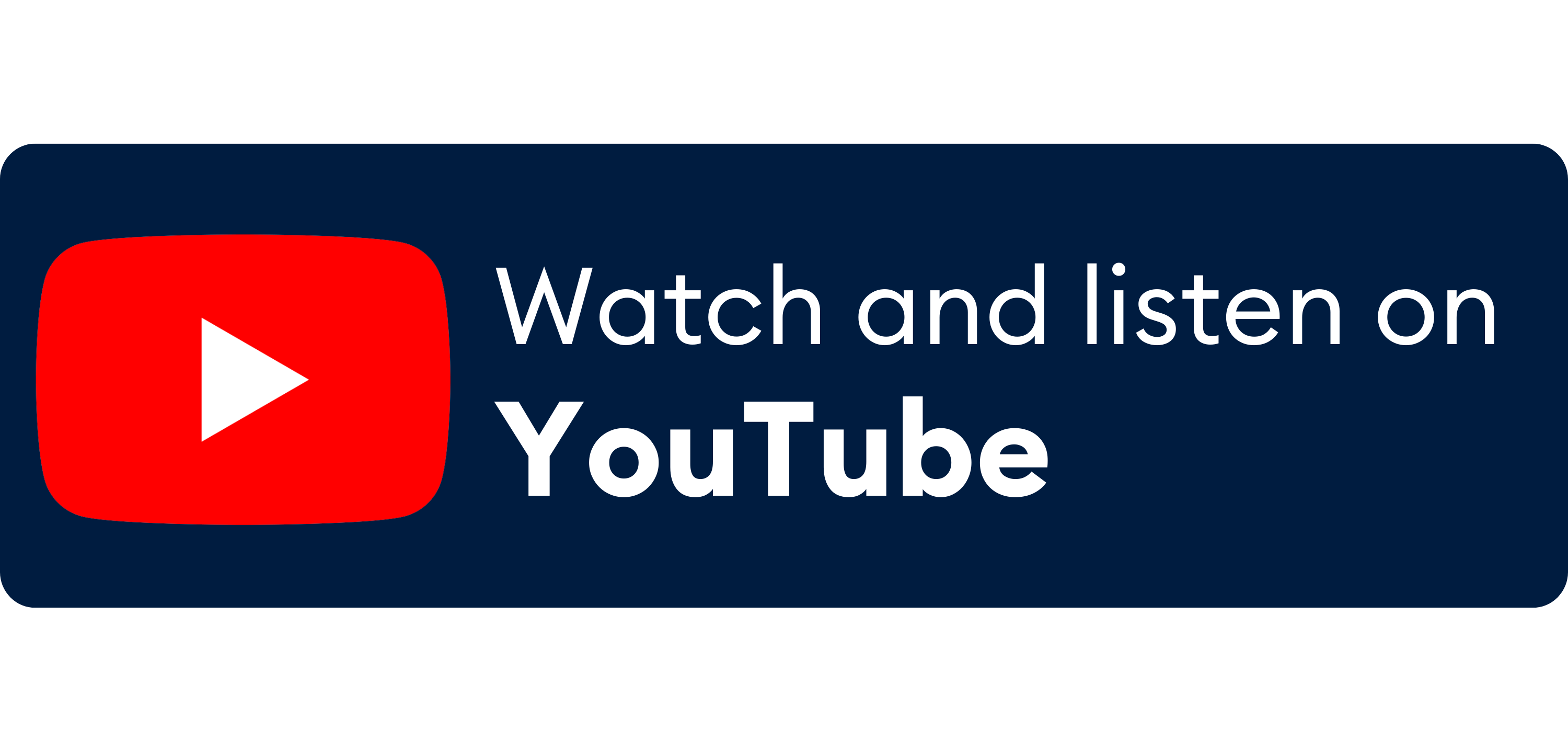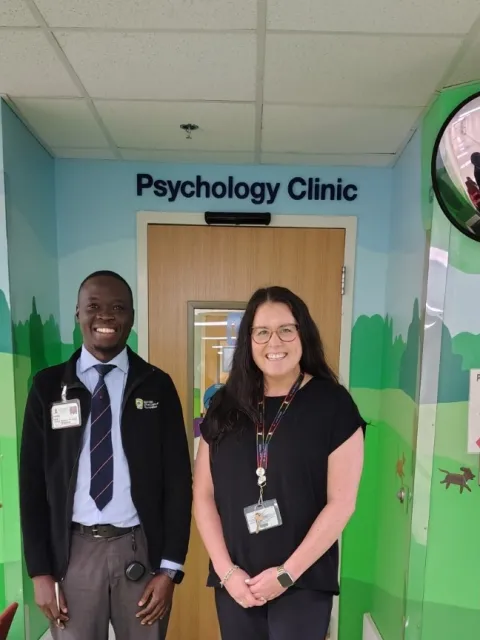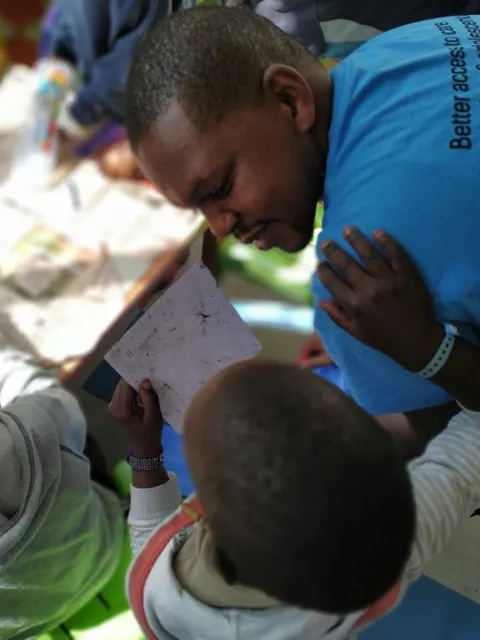Podcast "Let's Talk Cancer": Preventing children from dying unnecessarily from cancer

In this podcast episode of Let's Talk Cancer, Cary Adams speaks with Richard Shadyac about the underlying challenges with childhood cancer and the actions being taken to overcome them.
Around 400,000 children and adolescents develop cancer each year. While survival rates for children in high-income countries is about 80% in low-income settings it is under 30%.
This significant disparity is not an unsolvable problem. There is a path forward so that children everywhere do not die of cancer just because they do not have access to the appropriate diagnostics or treatment services.
In this podcast, Richard Shadyac, CEO of ALSAC, the awareness and fundraising organisation for St. Jude Children's Research Hospital ®, exposes underlying challenges with childhood cancer and the actions being taken to overcome them. He also discusses the key role played by St. Jude in helping transport Ukrainian children with cancer to care centres across Europe after the Russian invasion.
See podcast transcript below
Listen on: Spotify | Stitcher | Apple Podcasts | Amazon Music | Audible | Deezer
Podcast transcript
Cary Adams, CEO of UICC
Hello, welcome to Let's Talk Cancer by the Union for International Cancer Control, an organisation that unites and supports the cancer community to reduce the global cancer burden. I'm Cary Adams, CEO of UICC, based here in Geneva. Many cancers diagnosed in adults are preventable. Taking action to reduce the cancer risk, such as lowering tobacco consumption, improving one's diet and encouraging physical exercise could reduce deaths by 30 to 50%.
Childhood cancer is different. Children are too young for cancer to be the result of environmental or lifestyle factors. The causes of the disease often remain unknown. Rapid, and correct diagnosis followed by effective treatment becomes therefore more important, but the level of care and access to life saving services varies from countries to country.
Around 400,000 children and adolescents develop cancer each year. While survival rates for children in high income countries is about 80% in low income settings, it is under 30. With us today to discuss all of this is Rick Shadyac, CEO of ALSAC, the awareness and fundraising branch of St. Jude children's research hospital, which is located in Memphis, Tennessee in the USA.
St. Jude's has played a key role in helping children around the world with cancer. And today they're also helping children in Ukraine reach cancer centres across Europe, after the Russian invasion. We will discuss this later in the podcast.
Rick, it's great to talk to you. I know many people will probably want to know: what does ALSAC stand for – A.L.S.A.C. Perhaps you could explain.
Rick Shadyac, CEO of ALSAC
Well, thank you, Cary. It's great to be with you. So ALSAC is the American Lebanese Syrian Associated Charities. We are the fundraising and awareness organization for St. Jude Children's Research Hospital. We exist solely to raise the money and to create the awareness that's necessary for St. Jude to fulfill its mission. ALSAC actually was founded by Danny Thomas. Danny Thomas was Lebanese and he went around the country asking fellow Lebanese, to join him in building St. Jude Children's Research Hospital. So they had to raise the money to build it. And now our task at ALSAC is to raise the money and to create the awareness, and to continue the operation of St. Jude children's research hospital. You know, our mission is very unique Cary, in that no family will ever receive a bill from St. Jude, not for treatment, travel, housing or food.
Cary Adams
I know that many cancer organisations around the world admire what you do and what St Jude’s do, and in fact, take their, their inspiration from you. You may not know this, but Princess Dina Mired, was the president of UICC from Jordan. And she often spoke about how she and Jordan were inspired by the great work of St Jude’s and the work of the fundraising arm, your own arm, in generating so much support for that hospital. And I think it's had more effect around the world than probably you would estimate actually.
Now, we do know that in the US, being a high income country, one would hope that a child would receive an early diagnosis of cancer and treatment at St Jude’s or in one of the many, many other cancer hospitals across the country. But we do know that the chance of survival, as I said earlier, in other parts of the world is limited.
It's difficult to identify them, bring them to primary healthcare and then get the right treatment to them because of a whole host of reasons. What do you think are the key reasons for the disparity that we see around the world and how do you feel about it?
Rick Shadyac
I think there's a variety of factors. I mean, a lot of it has to do with access to care. It's been transportation. I've seen families that have to take multiple public buses to get their child to the city center, to be able to get medical care resources are issues in many, many countries, the focus on pediatric cancer versus adult cancer, education disparities - I mean, not everybody is aware. Access to medicine, I think is a critical component to this. And I would also say cultural stigma. You know, as I've traveled the world and I'm so glad to hear what you said about Jordan, because literally about a month and a half ago, I was in Jordan, celebrating the anniversary of the opening of the King Hussein cancer center. But in parts of the world that I've visited, there is a cultural stigma with respect to cancer.
Cary Adams
Rick it's interesting that you talk about stigma being a key issue with regard to cancer in lower and middle income countries - although one could argue, there are stigma issues in high income countries as well - but I've witnessed that myself where some of the cultural norms really are not conducive to helping to identify cancer in patients, because other patients feel that if other know about the cancer, it somehow causes broader problems in their life with their partners, with their friends, with society, more generally, they're shunned to some extent. So what sort of stigma issues do you think exist within the childhood cancer space that you've witnessed?
Rick Shadyac
It's very, very sad. I've heard about it directly from a couple of our partners in Africa, for instance. Part of this is an education issue in that people don't understand that it's not an infectious disease because of education and cultural norms in the country, it just isn't appropriate to reach out, to get an accurate cancer diagnosis. I've witnessed in the Middle East and you know, I'm proudly Lebanese, I've witnessed in the Middle East with some of my Muslim sisters and brothers, a hesitancy in letting females be touched by males because of the Muslim religion, so that then there's this reluctance to get diagnosed.
So, I mean, this is a really, really sensitive issue and we all have to be conscious of where these countries are in terms of culture and religion and what's acceptable. I hearken back to when St. Jude was founded. I remember the words of the first CEO, Dr. Pinkel here at St. Jude, and he would tell us a story that when he was a young pediatric oncologist in New York, many of his colleagues said : « Don't go into that room. That child has cancer. There's nothing you can do for that child. Let that child die in peace. » And Dr. Pinkel knew that child wouldn't die in peace. And Dr. Pinkel knew that there were things that we could do, and that's why he picked up his practice and moved to Memphis, Tennessee, to startup a hospital to help Danny Thomas and people like my father create St. Jude Children's Research Hospital and open the doors because he knew they didn't die in peace. And he knew that there were things that we could do. And because of his persistence, ultimately acute lymphoblastic leukemia, which had a survival rate at that point of about 4%, when we opened up, went over 50% within a decade.
I've heard stories in central America of doctors being told they had to put crosses on the doors of patients because the child was so far progressed. By the time they had diagnosed a cancer, there were limits as to what they could do and resources should be applied to other children that had a better chance at survival. All of these things are completely unacceptable, but what we need to understand is we need to meet people where they are on this journey, educate them that this is not an infectious disease that we need to allow these kids to be treated the best we can possibly treat them within their country, within their culture, and try to continue with them on this journey of progression that we've seen now in the developing countries.
Cary Adams
Well, it strikes me that that philosophy is clearly well embedded within your own organisation outside as well as within St. Jude, because what you're doing now is saying it is unacceptable that a child anywhere should die. And we will work with different cultures, different countries around the world to ensure that that child is given the respect that survival is possible. And it might seem like a big challenge, but if we can, if we can do it, we can do it.
Rick Shadyac
Cary, I'll give you one other example. The reason why St. Jude Children's Research Hospital was put in Memphis, Tennessee was to address healthcare inequity because black children were being turned away in the fifties and the sixties simply because of the color of their skin. They couldn't get access to that specialty care. But Danny Thomas wanted to open up St. Jude and on February 4th, 1962, when he did, kids from all races, creeds, religions, and economic circumstances were welcomed through the front door of St. Jude at a time when this city Memphis, Tennessee was segregated. So I mean this is fundamental to us. This is in our DNA here at AlSAC and St Jude.
You know, what's underneath all of this and is something that I'm so passionate about is : I don't believe that where a child lives should dictate that child's healthcare outcome. It just isn't fair. A child has no say in where that child is being born.
We have a partially solvable problem here in the United States and in higher income countries, as you alluded to early survival rates can now reach 80% or more for some of the cancers here in the United States and in higher income countries. But that's not the case around the world. That's why we partnered with the WHO.
The goal of this partnership with the World Health Organization is to try to raise survival rates for the six most common forms of childhood cancer from 20% to 60% by 2030.
Cary Adams
That's certainly something which people have become very aware of and, and stands out as a incredible global commitment, which we haven't seen before.
Rick Shadyac
We actually have four components to our program with the WHO and you know, we've done this for years, we've educated and we've trained. So we bring doctors here to St. Jude to learn and to train, and then they go back to their country to provide quality care to their populations. But we've also now started to create capacity building. This is where ALSAC comes in as well, because we also teach foundations in these countries how to fundraise, how to create awareness. St. Jude is very focused as well on patient-centered care. So this is bringing up the quality of care in each of these clinics that we partner with.
And you know what I'm so excited about though, Cary? It's access to quality specialty chemotherapy drugs. And St. Jude is doing something about. We've done something about transportation, we've done something about abandonment of care, but this is going to be a tangible program where we're going to commit about 200 million to provide free chemotherapy drugs, quality chemotherapy drugs, that are going to be delivered on time. We want to try to touch 120,000 children in 50 different countries over the course of the next five years. It's an audacious goal, but we think this is gonna be the game changer that actually raises survival rates. So I'm excited to see this play out and yes, we're gonna put resources behind this and that's just a start.
Cary Adams
It's a great start and it's an inspiration and thank you, Rick, and all the team there for making this happen. How do we motivate other organisations and other countries, particularly high income countries to put this at the top of their development agenda, to see childhood cancer as the equivalent of other diseases - the malarias, the TBS, etc. How do we do that? What can we do collectively to make sure that this builds a sustainable long term?
Rick Shadyac
It’s a great question. It starts with education and awareness. So we have to let the world know about this problem. In September it's childhood cancer awareness month. So that's part of the plan here is to raise awareness around the globe. That childhood cancer is a disease that we actually think that we can treat and help kids get better. So it starts there appeal to everyone's sense of humanity. You know, people want to help children and we all need to demonstrate compassion to these children. As I said earlier, these children didn't have any say as to where they were born, but they deserve the same opportunity as my kids deserved to grow up and lead a healthy life.
And ultimately to be able to, to realise their dreams. And then to convince the world that we have a path forward, this is not an unsolvable problem. This is a problem that we've demonstrated that we can cure. There are many, many kids all around the globe that are surviving childhood cancer. So that needs to be the message in higher income countries that we can do, and that we have a moral obligation to do, much better in low and low and middle income countries to help those kids who deserve it.
Cary Adams
Rick you are so, so right. I have had the good fortune of meeting many people who have survived childhood cancer who have become ambassadors for the cancer, who themselves, because they they've survived it, don't like seeing other children go through the challenge of a cancer diagnosis without the appropriate infrastructure treatment and care to now increase their survival chances. So we have, I think, a growing ambition across UICC shared by many that childhood cancer is something that needs globally to be addressed. And I think we can get there.
I mentioned earlier the challenges in Ukraine. At UICC we've set up a Solidarity Fund to actually help cancer organisations in and around the country to deal with the broader challenges they're facing on helping individuals with cancer and also the oncologists and the hospitals in other countries that are taking in those patients. You've specifically been working on the challenge of children's cancer for Ukraine. What have you been doing? And what's happened so far?
Rick Shadyac
You know, Cary, it's actually something that we've been preparing for for years, by developing relationships throughout Europe and the EU, and actually around the world. And that's been a part of what we've done in our St. Jude Global Initiative.
But when Russia invaded Ukraine… I want us all to think about how disruptive - it's a horrible situation - but how disruptive it is, especially to families whose child has been diagnosed with cancer. They've already received this devastating news, in some cases, they started treatment. Then the bombs start falling on your country and you don't have an ability to get access to care. And then they have to make the decision, ultimately, that they're gonna leave their country to seek safe passage and then travel to a foreign country. And we were there in partnership with our friends in Poland and then in collaboration with many of our sites that we work with throughout the European Union.
We were able to put about a thousand Ukrainian kids on a registry to make sure that we're tracking them, that they're at appropriate institutions around the world. Literally we helped with our partners move about 800 of these kids. And you know, I'm really proud to tell you that 10 of those children are here at St. Jude Children's Research Hospital. Eight we actually transported here. Two additional ones came to us through our normal referral channel. And we're offering them their care. The most important thing is that because of the collaborations that we built up over the years, we were able to distribute these children and get their families the care that they needed so that their care could be continued. And it's so important that care not be interrupted. And it clearly was by virtue of the war. The kids here at St. Jude are doing well. They continue with their care uninterrupted. I know a couple of them have gone back to Ukraine because you know, some of their family members are there : their fathers are there, other siblings could be there fighting and participating in the war. So I'm really proud of what we've done, but I'm mostly proud that the world came together to recognise this terrible humanitarian crisis. To reach out to our Ukrainian brothers and sisters and children, and to help them at a time of need and God willing, many of these kids are gonna survive. And I can't wait to see it, what happens to them as they grow up, given the experiences that they've all been through.
Cary Adams
I think you very well described the characteristic of the cancer community, which I feel privileged to be part of in that it is a very collaborative community. There is very little competition. We all want to work on the same objectives. And when crises like these happen we do pull together and everyone brings around skill sets, their capabilities and, generally we resolve them. So I think we should be proud of the cancer community more generally as well.
But what else needs to be done for Ukraine then? What else do you think we need to do?
Rick Shadyac
The war needs to end. The war needs to end yesterday. That’s the fundamental problem right now. And then we still need to help our sisters and brothers in Ukraine, and in the surrounding area. We're continuing to work with the Tabletochki Foundation in Ukraine. They're raising money and I've met with the president of that foundation. And I know that she's got grand plans to try to rebuild the medical system there. Maybe even create a brand new one. But none of this can take place, this rebuilding and the rebuilding of lives too, it can't take place until the war stops. And so that really is underneath all of this, but we can remember that we can offer financial assistance to these people. If you're hearing this and you're all around the world, you can support the clinics and the countries throughout the EU that are supporting these, these children, and just continue to come together and pray for them and pray for the end of this war
Cary Adams
It's childhood cancer awareness month, and I think your message will resonate around the world. We certainly, as UICC will use it to ensure that people are aware of the challenges, in Ukraine, the challenges in low middle income countries. And even in some deprived areas of high income countries as well, where children don't have access to the services they require for their illnesses and their cancers. Next month is the World Cancer Congress in Geneva. Rick, I understand you're coming. I think you might be even a speaker, which would be great. What are you gonna be doing when you come over to the World Cancer Congress?
Rick Shadyac
I am gonna be a speaker I'm super excited to attend this conference. The most important thing to me is to just be in the community with people that share the same passion that I have to try to help kids all around the world. Collaboration is so important. So I'm anxious to go and to share the little bit of knowledge that I've gained during my 13 years as the CEO of American Lebanese Syrian Associated Charities here at St. Jude Children's Research Hospital, to learn from everyone else, and to continue the momentum that we have to try to solve this amazing challenge that sits in front of us, that is pediatric or childhood cancer.
Cary Adams
Thank you very much for your time today and at the World Cancer Congress. And I think I can say on behalf of all people that I know St. Jude touched in the past, all the children have been affected by your good work : thank you very, very much.
Rick Shadyac
Thank you, Cary.
Cary Adams
Thank you for listening to Let’s Talk Cancer, a podcast, that’s given me the opportunity to talk to incredible people around the world so we can hear what they're doing, what they think and what we could all do to make a difference on cancer control.
Listen on: Spotify | Stitcher | Apple Podcasts | Amazon Music | Audible | Deezer
Last update
Monday 25 September 2023